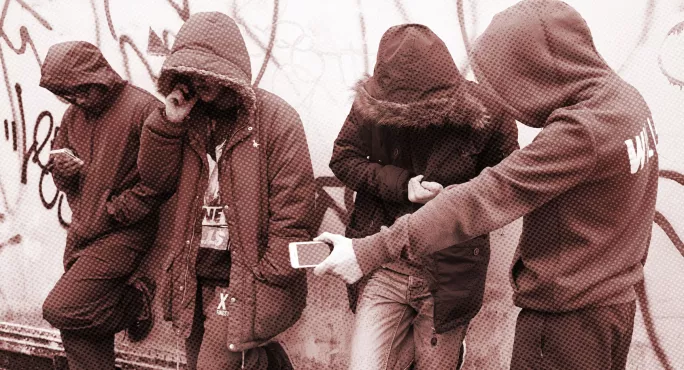Gang violence: How our trust protects vulnerable pupils

The staff at Michael’s school suspected he was being abused when he arrived with significant bruising. As was their legal duty, they referred him to social services.
The police interviewed him, removed him from home, and he was taken into care overnight. However, when social services reviewed his case, they said Michael did not meet their threshold to be taken into care. He was returned home.
The risk of gang exploitation
This made his domestic situation worse and eroded his trust in school, the police and social services.
Everyone in the system was doing their job, but the result was a child sent back into a family where, with relationships broken, his situation became even more dangerous.
Michael continued to be hurt by his father but knew that if he went to school the bruises would be seen by his teachers. The police and social services would become involved again.
- Safeguarding: Seven ways schools can protect pupils from county lines
- Ofsted: Schools face scrutiny on youth violence
- County lines: How can teachers help pupils?
So he stopped going to school, making him vulnerable to his local gang. Hanging around on his estate, he was groomed by them: talked to, made to feel important and given a sense of status.
Then he was told he owed them money. The trainers and cash he received were not gifts but investments. He was forced to deliver drugs and started carrying a knife for protection. Eventually he stabbed another boy and entered the criminal justice system.
Keeping children safe
We need to be honest that this trajectory is the bleak reality for some young people.
Indeed, at Oasis we know that some children in the schools we run, particularly in places like London and Greater Manchester, face these risks.
As such, our whole education ethos commits us to supporting them to avoid this cycle, not least because, as the above shows, the systems that exist outside education are often unable to provide the support young people really need.
In Waterloo, south-east London, for instance, alongside our primary and secondary school, we have worked hard to develop and sustain a raft of other services that offer wraparound care to our children and their families - largely funded by individual donations and grants from charitable trusts and foundations.
This includes a children’s centre; a children, families and youth service; a debt, legal and relationships advice centre; a food bank; a community farm; housing for refugees; and a partnership with our local hospital providing A&E support to young victims of violent crime.
Then our support teams of youth workers, family support workers, teaching staff and our community development team work together to identify and support those children at risk of exploitation or serious violence and support them to access these services.
Protective layers
This means young people know where to turn when there are problems or threats, and we can spot dangers early because we know our children and what is happening in their lives.
We create protective layers and safe spaces for young people to explore their identity, increase their confidence, develop interpersonal skills, practise decision-making, and think through the consequences of their actions.
The result is a dramatic fall in young people being exploited and criminalised, and a huge rise in educational achievement and attainment and life opportunities.
In Waterloo we now send more young people to Oxbridge and Russell Group universities than used to end up in the criminal justice system before we began running the school.
This has not been easy and reaching this point has taken years. We did not do it alone either but have brought together leaders of the different local agencies and made them accountable to one another, working to one agreed vision and single framework of common purpose.
The power of partnerships
We have built external partnerships with other grassroots organisations, charities, churches, mosques, other faith groups and businesses, as well as with the NHS, the police and social services.
This focus on joined-up, inclusive, wraparound, holistic support for children and their families should be the future of education - rather than the current patchwork of ill-fitting systems, policies and regulations that schools are compelled to comply with.
If we can create this joined-up system, where those supporting children to succeed are aligned and the right safety nets exists, then we can give more children like Michael the opportunity to escape the threats around them and receive a fulfilling education.
Steve Chalke is author of A Manifesto for Hope and founder of Oasis Charitable Trust, which includes Oasis Community Learning, a multi-academy trust of 54 schools
You need a Tes subscription to read this article
Subscribe now to read this article and get other subscriber-only content:
- Unlimited access to all Tes magazine content
- Exclusive subscriber-only stories
- Award-winning email newsletters
Already a subscriber? Log in
You need a subscription to read this article
Subscribe now to read this article and get other subscriber-only content, including:
- Unlimited access to all Tes magazine content
- Exclusive subscriber-only stories
- Award-winning email newsletters
topics in this article



